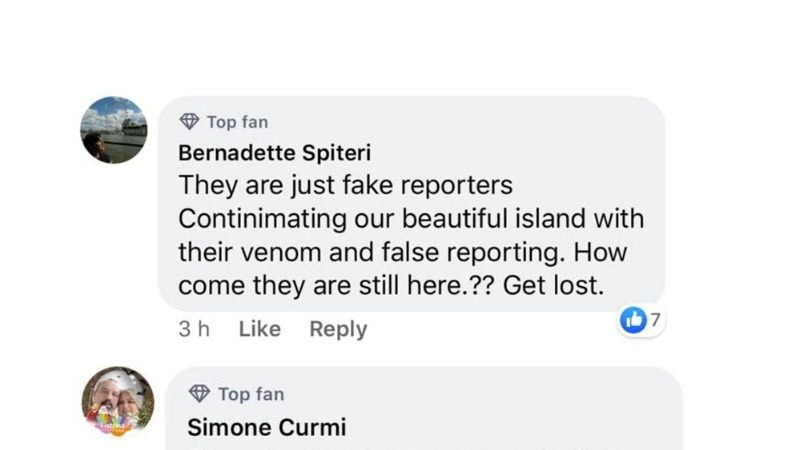The government has denied that The Shift’s news founder Caroline Muscat was refused access to Republic Day events, despite correspondence clearly showing that the President’s Office refused to accept an international press card to grant access to national events – a move harshly criticised by international press freedom organisation Reporters Without Borders.
“Caroline Muscat was informed that applications for DOI Access Cards are done online and was also provided with the relative link. She was also informed that Access Cards are issued within hours, at the most, as can be verified by local journalists,” according to the statement.
Journalists working at The Shift have years of experience working in newsrooms in Malta and abroad. “At no point, in all our years of work in the field, has a press card in Malta been issued within hours,” Muscat said. “And the government is lying when saying that I refused to apply for an Access Card for Republic Day events.”
To confirm this, The Shift is publishing correspondence between Muscat and Norma Saliba, public relations executive at the President’s Office.
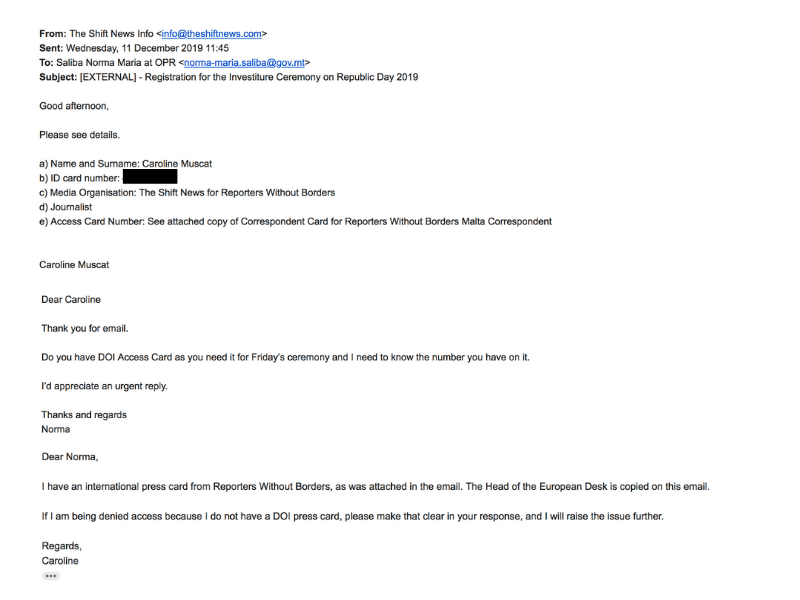
The President’s Office insisted that Muscat must apply for a government press card for approval before a further layer of approval by the President’s Office would decide which journalists would be granted access to State activities on the day.
“An international press card is valid in any country, except Malta, it seems, where the government insists on controlling which journalists can attend government activities,” Muscat said.
Saliba has close ties to the Labour Party in government. Prime Minister Joseph Muscat was a witness at her wedding. The career of the former TVM broadcaster made huge strides under this administration, even being appointed to a government Board while still acting as a journalist for the State broadcaster.
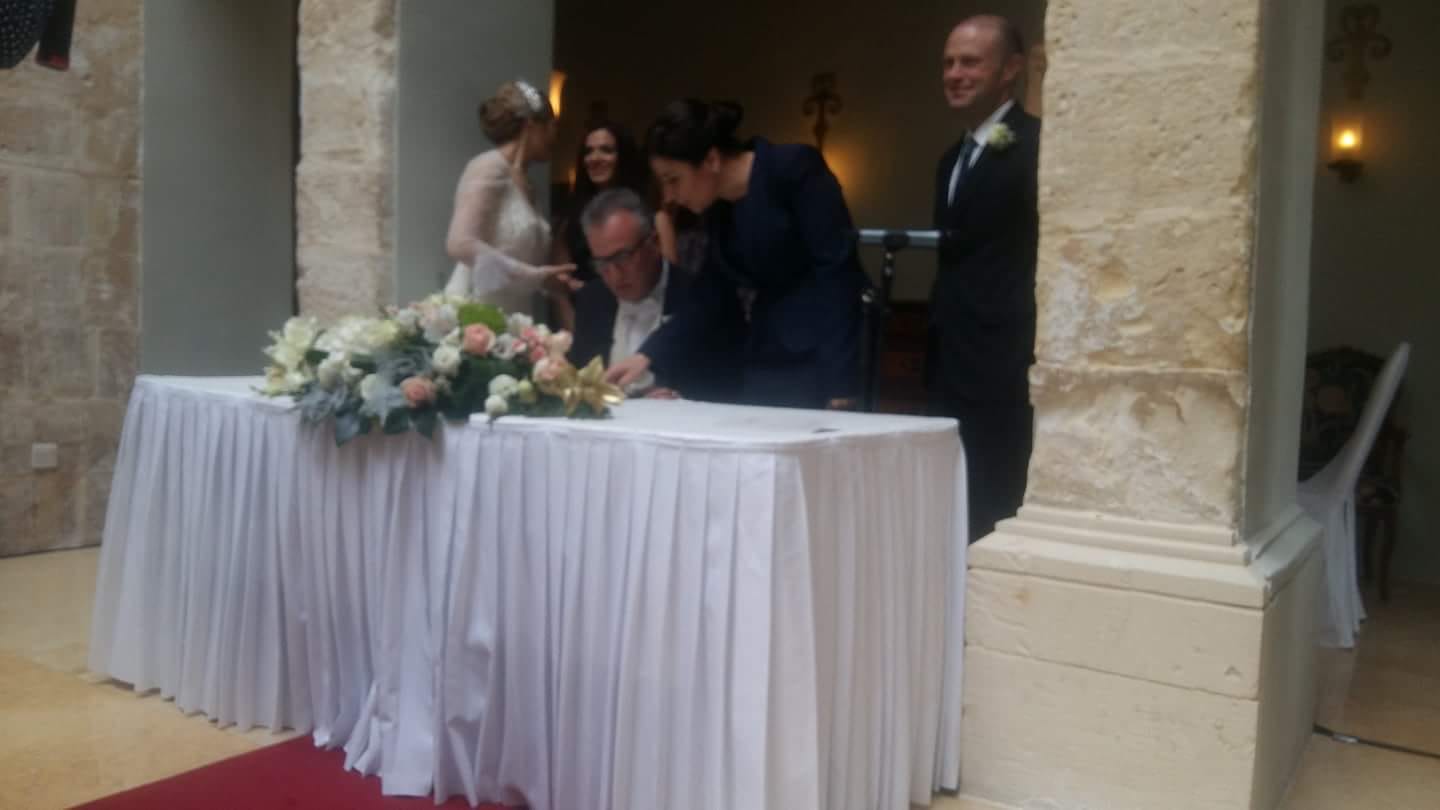
Prime Minister Joseph Muscat was a witness at Norma Saliba’s wedding.
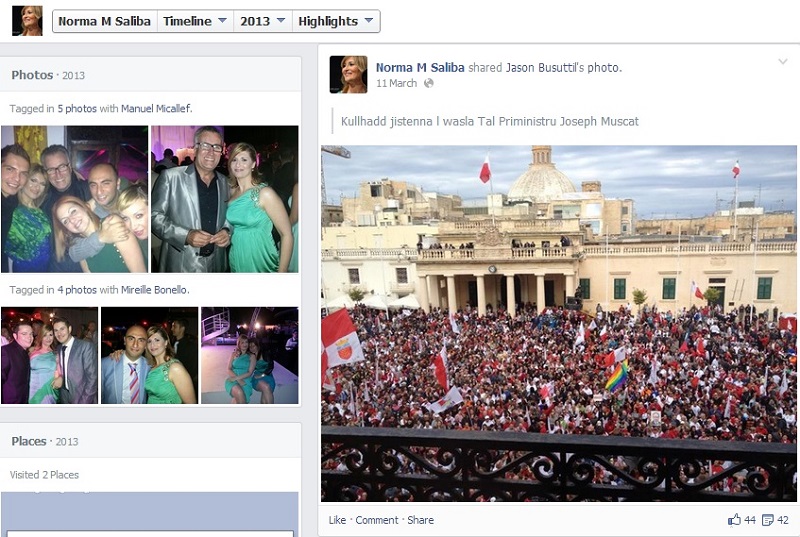
Norma Saliba’s social media posts.
Muscat was refused an Access Card unless she applied for a national government press card before that. She is an internationally accredited journalist who has never been refused entry to any event in any country of operation.
Reporters Without Borders reacted strongly to Muscat being denied access despite holding an international press card. While the government’s Department of Information said the procedure was common in other countries, the international organisation that focuses on the defence of press freedom said this was “nonsense”.
Pauline Ades-Mevel, Reporters Without Borders Head of EU Desk, said: “Given the political context in Malta and the wide interest of journalists from all over the world for local issues, not letting journalists holding an international press card on grounds that they first need to have national press cards approved by the government is nonsense.”
Muscat said: “The government is choosing to ignore a problem that has persisted in this country where it thinks that it can decide who is accredited to work as a journalist and granted access to official events. A journalist holding an international press card is granted access to events in any other democratic country. Only in Malta is this situation accepted.”
Assassinated journalist Daphne Caruana Galizia had stressed the problem with the government’s attitude to the press in Malta, criticising both the Labour Party and Nationalist Party administration for procedures implemented.
In an article she published on 19 January 2016 she wrote: “It has always shocked me that Maltese newspaper editors consent to this offensive practice of having press cards issued by the Maltese government – more specifically, by the Office of the Prime Minister, under whose responsibility the Department of Information (DOI) falls – a unique practice in the democratic world.”
“The universally standard practice in the democratic world is for journalists to be accredited by those for whom they work, or by their union or trade association, most certainly not by the government because they don’t work for the government and the government should never have any process that even remotely resembles the ‘licensing’ of journalists,” Caruana Galizia had pointed out.
Muscat added that the statement issued by the DOI on Friday was intended to further target independent journalists as the media channels of the Labour Party in government used a screenshot from the article on The Shift that led to an avalanche of comments targeting both Muscat and journalist Camilla Appelgren, the author of the article on The Shift.
The article in the Labour Party’s media was written by Stefan Bajada, a Labour Party councillor for Xagħra.
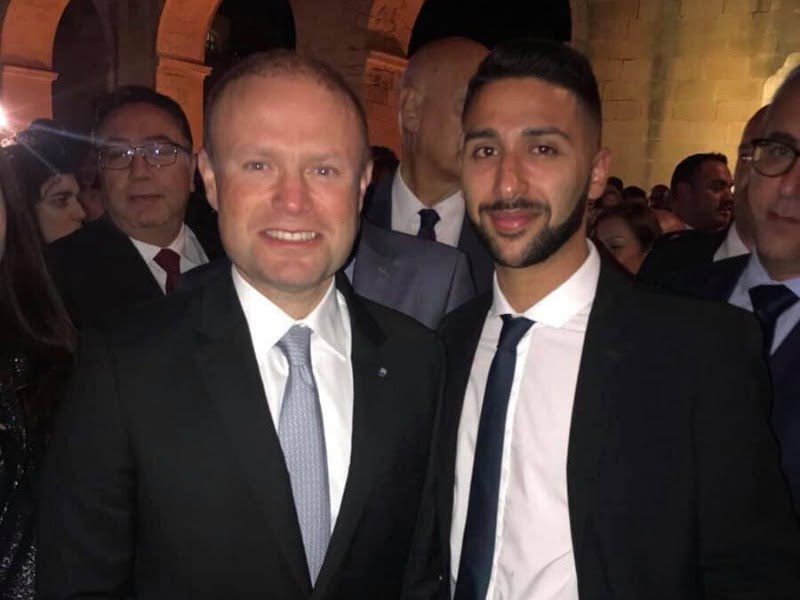
Joseph Muscat and Stefan Bajada, Xagħra Councillor and ‘journalist’ at the Labour Party’s TV station.
Social media accounts posting vile and insulting comments on the Labour Party’s social media accounts against the journalists included government officials. There was no attempt to moderate or remove comments by those responsible.
“Ignore them, let fake reporters say what they like, we are used to their lies.”
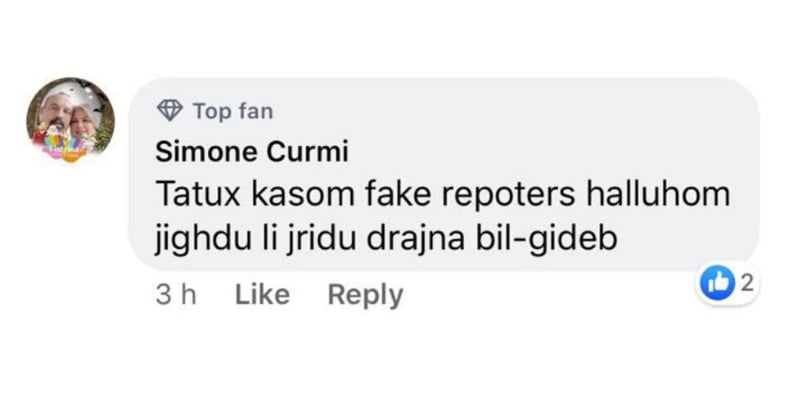 Appelgren was also targeted because of her nationality. “Maltese idiots adore her because she criticises their country. Now I’ll go to Sweden and criticise them and see if there are four shits supporting me.”
Appelgren was also targeted because of her nationality. “Maltese idiots adore her because she criticises their country. Now I’ll go to Sweden and criticise them and see if there are four shits supporting me.”
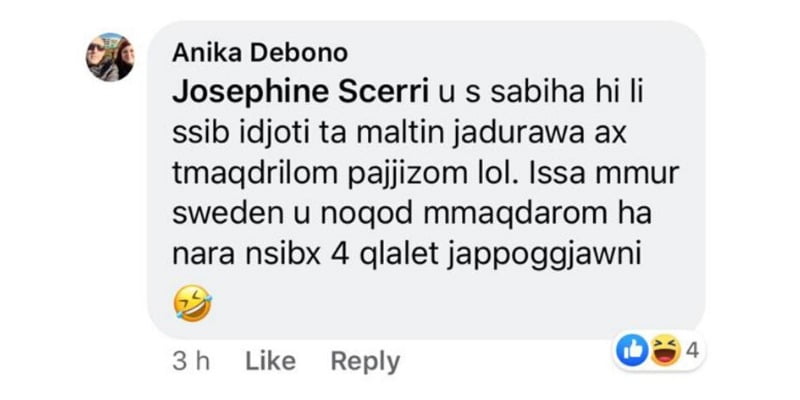
Another comment said, “fake reporters are contaminating the island with their venom and false reporting…get lost”. Appelgren was accused of “hating Malta”.
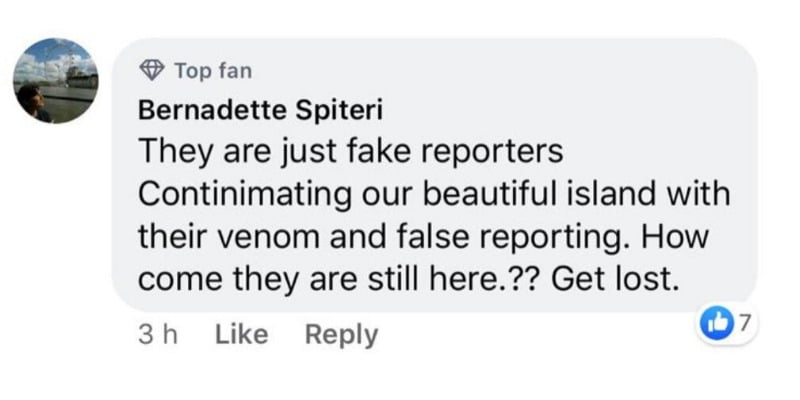
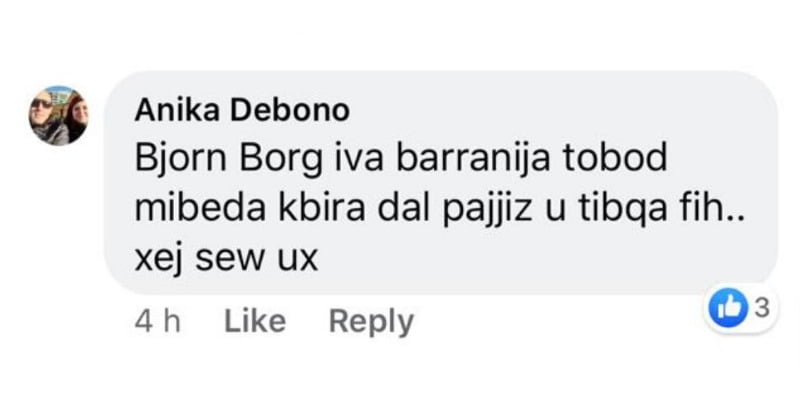 The government continues to defy recommendations by the Council of Europe. “Press or union cards, relevant accreditation and journalistic insignia should be accepted by State authorities as journalistic credentials, and where it is not possible for journalists or other media actors to produce professional documentation, every possible effort should be made by State authorities to ascertain their status.”
The government continues to defy recommendations by the Council of Europe. “Press or union cards, relevant accreditation and journalistic insignia should be accepted by State authorities as journalistic credentials, and where it is not possible for journalists or other media actors to produce professional documentation, every possible effort should be made by State authorities to ascertain their status.”
Such recommendations are politically binding, which means they are frequently cited by the European Court of Human Rights.
The Council of Europe report on Malta referred to this problem saying it had “a chilling effect” on journalism, resulting from the arbitrary use of administrative measures such as registration and accreditation schemes for journalists, bloggers, internet users, and foreign correspondents in order to harass journalists and other media actors or to frustrate their ability to contribute effectively to public debate.
Reporters Without Borders said this was an unacceptable attack on press freedom. “Reporters Without Borders sees it as an attack on press freedom in a country that is currently in turmoil because of allegations of corruption at the heart of government, linked even to the assassination of a journalist. It adds to press freedom concerns in the country when journalists are excluded from activities at a time when answers are demanded in the public interest,” Ades-Mevel said.
“This is unacceptable,” she added.
Muscat was awarded the Reporters Without Borders Press Freedom Award for Independence this year for her reporting for The Shift.
Since the Labour Party came into power in 2013, Malta’s press freedom ranking has plummeted a staggering 32 places, ranked 45 in 2013 to 77 in 2019.
Member States should take into account the specific nature and democratic value of the role played by journalists and other media actors in particular contexts, such as in times of crisis, during election periods, at public demonstrations and in conflict zones, the Council of Europe said. In these contexts, in particular, it is important for law enforcement authorities to respect the role of journalists and other media actors covering events.

